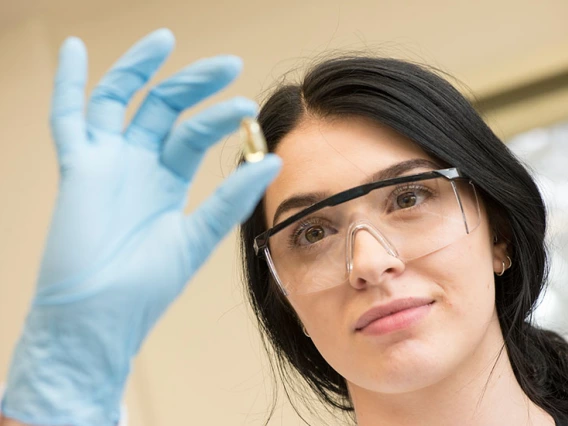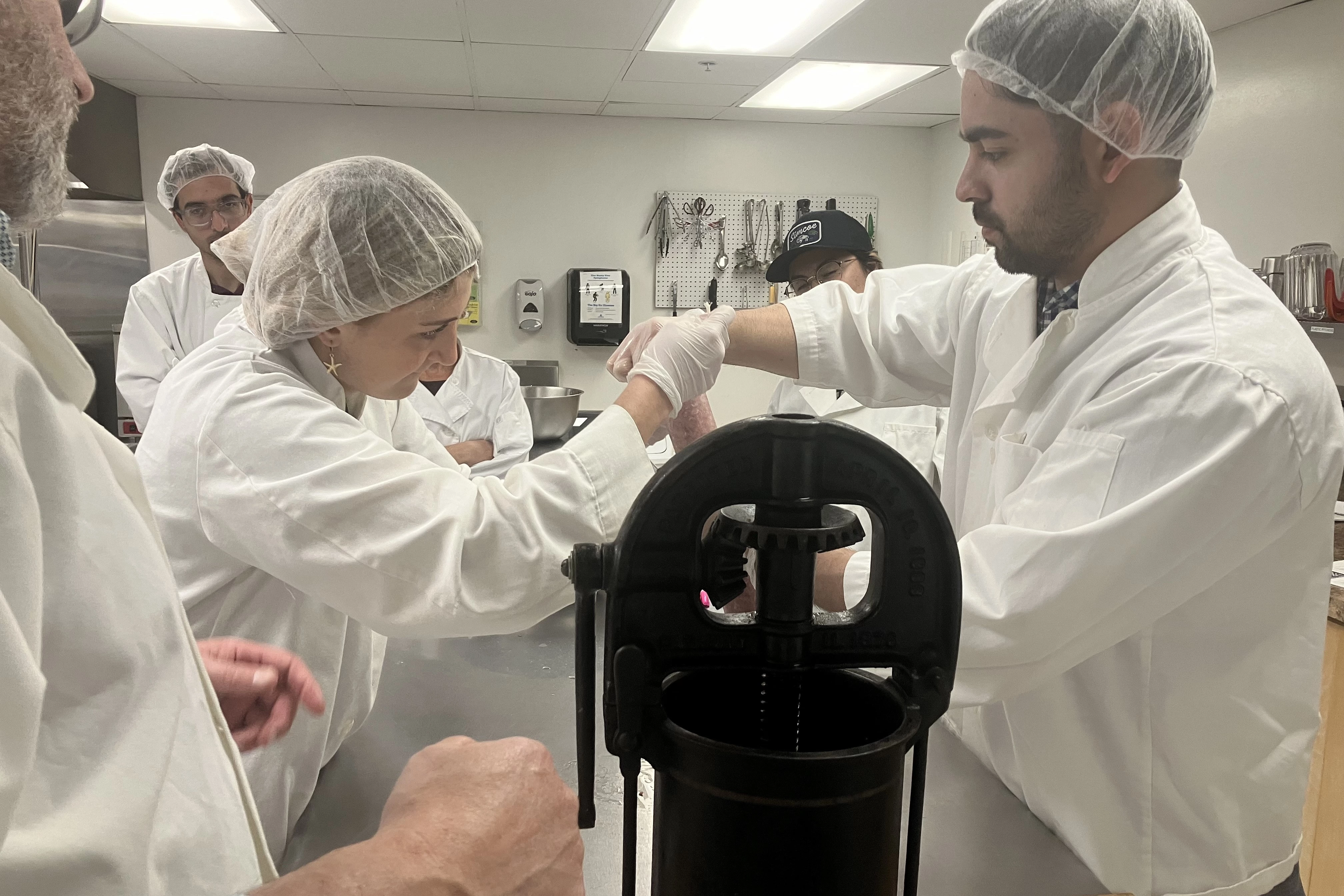
Nutrition & Dietetics
The B.S. in Nutrition & Dietetics empowers you to make a difference in the lives of others as you optimize food science for ultimate wellbeing. Our program equips you with the knowledge and skills to excel in dietetics, food product development, disease prevention, sports nutrition, and more as you advance toward becoming a registered dietician or nutritionist through this accredited program.

Nutrition & Human Performance
In the B.S. in Nutrition and Human Performance, you’ll learn to combine nutrition, athletics, exercise and behavioral sciences to improve quality of life at every stage. When you graduate, you’ll be ready for a career in the health and fitness industry, community health and wellness, or to pursue graduate studies in physical therapy, exercise physiology and related health sciences.

Nutritional Sciences & Wellness
The B.S. in Nutritional Sciences & Wellness explores food, nutritional therapy and optimal well-being. You'll customize your degree with coursework, internships and research opportunities that will make you a competitive applicant for graduate programs in the medical, dental and physical therapy fields, and prepare you for careers in nutrition-based businesses.
Nutritional science majors at the University of Arizona
Ready to lead break throughs in nutrition, health, human performance and wellness? Connect with us to get a digital brochure on exclusive student resources, financial aid opportunities and sample 4-year plans for our degree programs in nutritional science.
College is a big investment, but a University of Arizona education may be more affordable than you think. No matter your background or family’s financial situation, you have options to make it manageable.
At Arizona, 9 out of 10 students receive financial aid. That means most students pay less than the estimates shown here. By maximizing your financial aid – scholarships, grants, loans, or work-study – you can lower your costs while earning a degree that will pay you back for a lifetime.
Estimated cost of tuition for first-year and transfer students:
- Arizona residents: $13,900/yr
- Non-Arizona residents: $42,300/yr
Get our guide to learn how students like you are funding their futures.
Application requirements vary based on your status as a first-time, transfer, international, online or returning student.
- Students who haven't completed 12+ transferable post-high school college credits are considered a first-time college student, and must meet Arizona's core competency requirements to be eligible to apply.
- You are considered a transfer student if you have completed 12+ transferable post-high school college credits.
- If you are under the age of 22 at the start of your desired term, you will need to meet the core competency requirements and have a minimum 2.0 cumulative college/university GPA.
- If you are 22 or older at the start of your desired term, you will need a minimum 2.0 cumulative college/university GPA.
- SAT/ACT scores are not required for general admission.
- You have the option to submit a resume and 500-word personal statement during your application.
Get the guide to find out more details about the application process and deadlines.
Degrees in nutritional science and dietetics prepare you for careers and graduate programs at the intersection of science, food, health and medicine.
According to the U.S. Bureau of Labor Statistics1, 2023 median pay for nutrition and dietitian careers was $69,680. Similar careers include:
- Dietitians and nutritionist: Dietitians and nutritionists plan and conduct food service or nutritional programs to help people lead healthy lives.
- Agricultural and Food Scientists: Agricultural and food scientists research ways to improve the efficiency and safety of agricultural establishments and products.
- Clinical laboratory technologists and technicians: perform medical laboratory tests for the diagnosis, treatment, and prevention of disease.
- Exercise physiologists: develop fitness and exercise programs to help people improve their health.
1U.S. Bureau of Labor Statistics. (2024c, April 17). Dietitians and nutritionists : Occupational outlook handbook. U.S. Bureau of Labor Statistics. https://www.bls.gov/ooh/healthcare/dietitians-and-nutritionists.htm
Ready to start your career in nutritional science?
From our welcoming local community to the sunshine gracing our campus, every corner holds the promise of new adventures and personal growth. Your journey to a lucrative career at the intersection of nutrition, health, fitness and medicine begins here. Sign up to discover what it means to be a part of the University of Arizona College of Agriculture, Life & Environmental Sciences.



